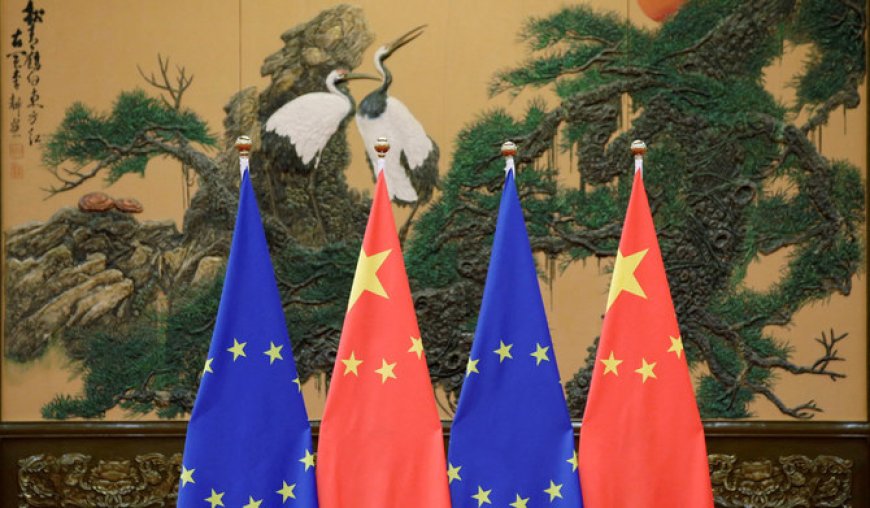EU Sanctions 19 Chinese Firms for Alleged Support to Russian Military Efforts
In a significant move aimed at curbing perceived support for Russia's military operations in Ukraine, the European Union has imposed sanctions on 19 Chinese companies, accusing them of aiding Moscow's defense sector.

The latest round of sanctions, detailed in the EU’s Official Journal, targets entities allegedly involved in supplying "dual-use goods and technology" that could bolster Russia's military capabilities. This action marks the 14th package of sanctions against Russia, with 61 additional firms from various countries now added to the list, bringing the total to 675 entities facing EU restrictions.
Among the newly sanctioned Chinese companies are significant players in the satellite industry, including Chang Guang Satellite Technology and Head Aerospace Technology. Chang Guang Satellite Technology, known for its advanced satellite capabilities, was implicated for its alleged involvement in supplying satellites and imagery to Russia’s Wagner mercenary group. Similarly, Head Aerospace Technology, previously sanctioned by the US, faces EU restrictions for its role in providing satellite images.
The EU's sanctions are part of broader measures targeting firms accused of supporting Russia's military-industrial complex amidst ongoing conflict in Ukraine. Western nations, including the US and Europe, have repeatedly accused China of indirectly aiding Russia's military efforts through the sale of critical components and technology.
International Response and Denials
China has consistently denied these allegations, with its Foreign Ministry spokesman, Lin Jian, dismissing them as "false information." Despite China's denial of direct military support to Russia, concerns persist among Western nations regarding the flow of dual-use technologies that could bolster Moscow's military operations.
Expanded Sanctions List
In addition to the Chinese entities, the EU's latest sanctions list also includes companies from Turkey, Kyrgyzstan, India, Kazakhstan, and the United Arab Emirates, reflecting a concerted effort to widen the scope of punitive measures against entities perceived to support Russia's military ventures.
Implications and Future Developments
The imposition of sanctions on Chinese firms underscores the escalating geopolitical tensions and economic repercussions of the Ukraine conflict. As global scrutiny intensifies, affected companies and governments will navigate the fallout, with potential implications for international trade and diplomatic relations.
The EU's decision to expand sanctions represents a strategic response to what it perceives as destabilizing actions in Ukraine, aiming to exert pressure on entities deemed complicit in supporting Russia's military actions. The impact on global supply chains and diplomatic engagements remains a critical concern as nations navigate the complex dynamics of international relations amidst ongoing conflict.
The EU’s sanctions against Chinese companies highlight the intersection of economic policy and geopolitical strategy in addressing global security challenges. As the situation evolves, continued international scrutiny and diplomatic efforts will shape the trajectory of sanctions enforcement and their broader implications on regional stability and global security.













































